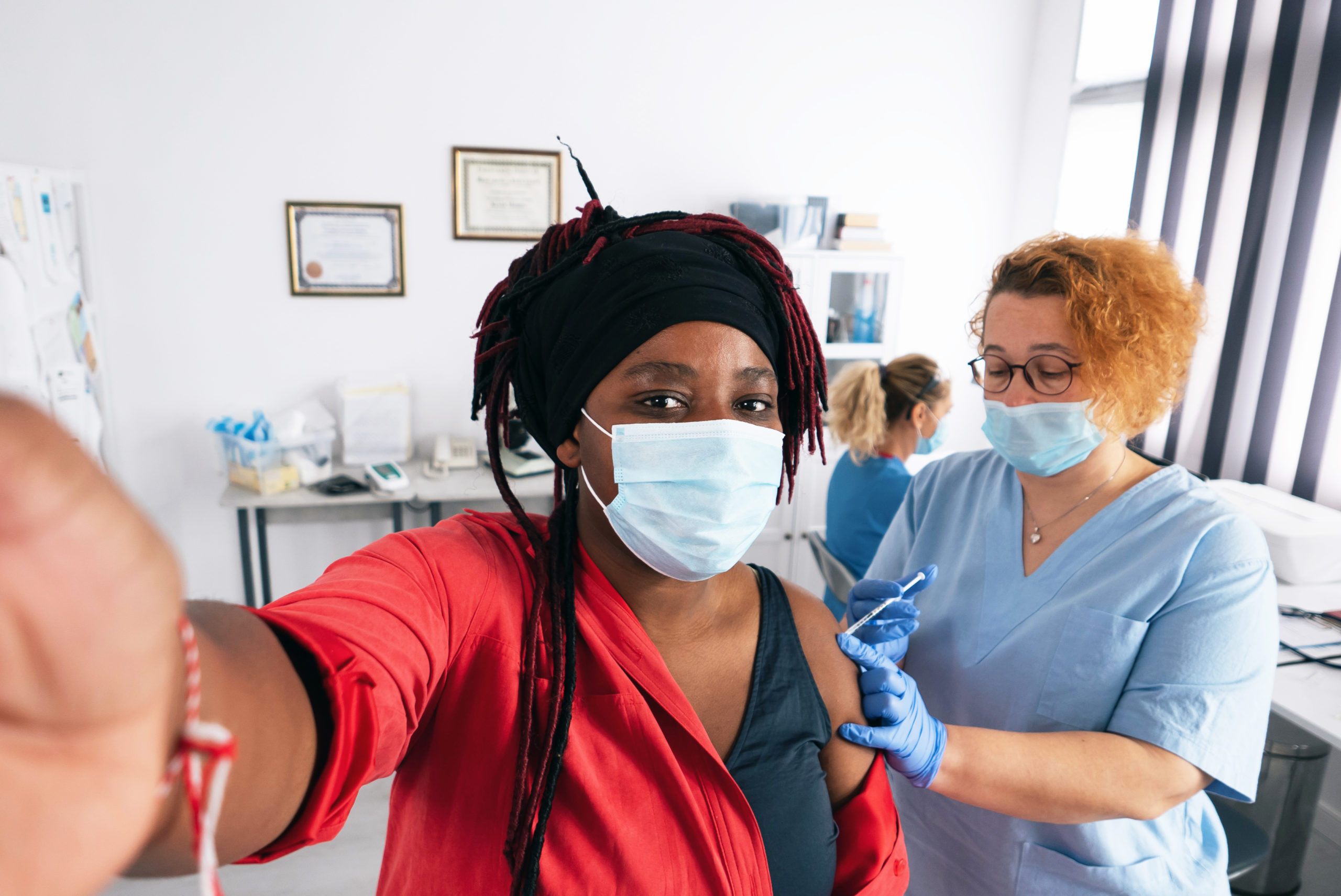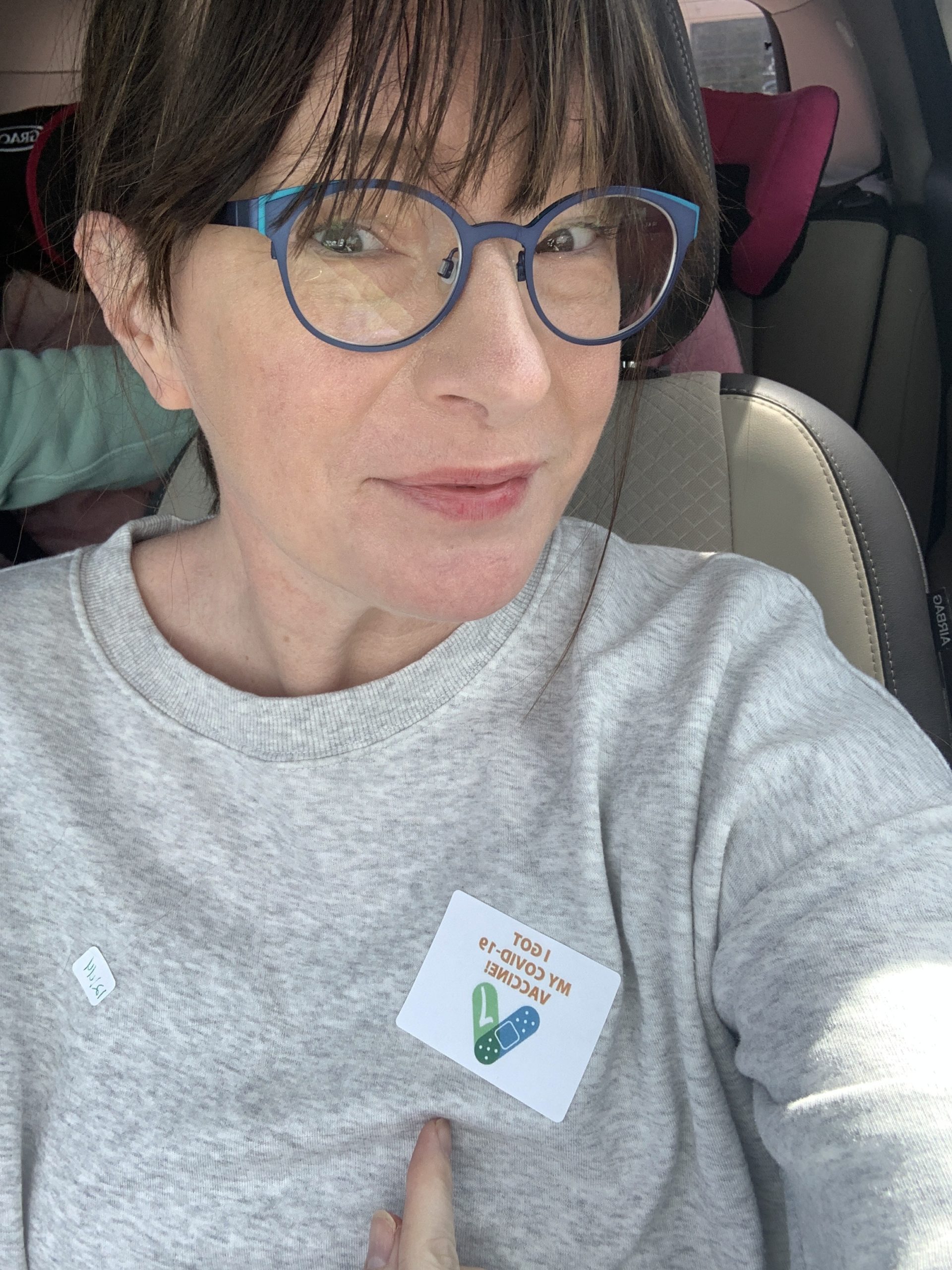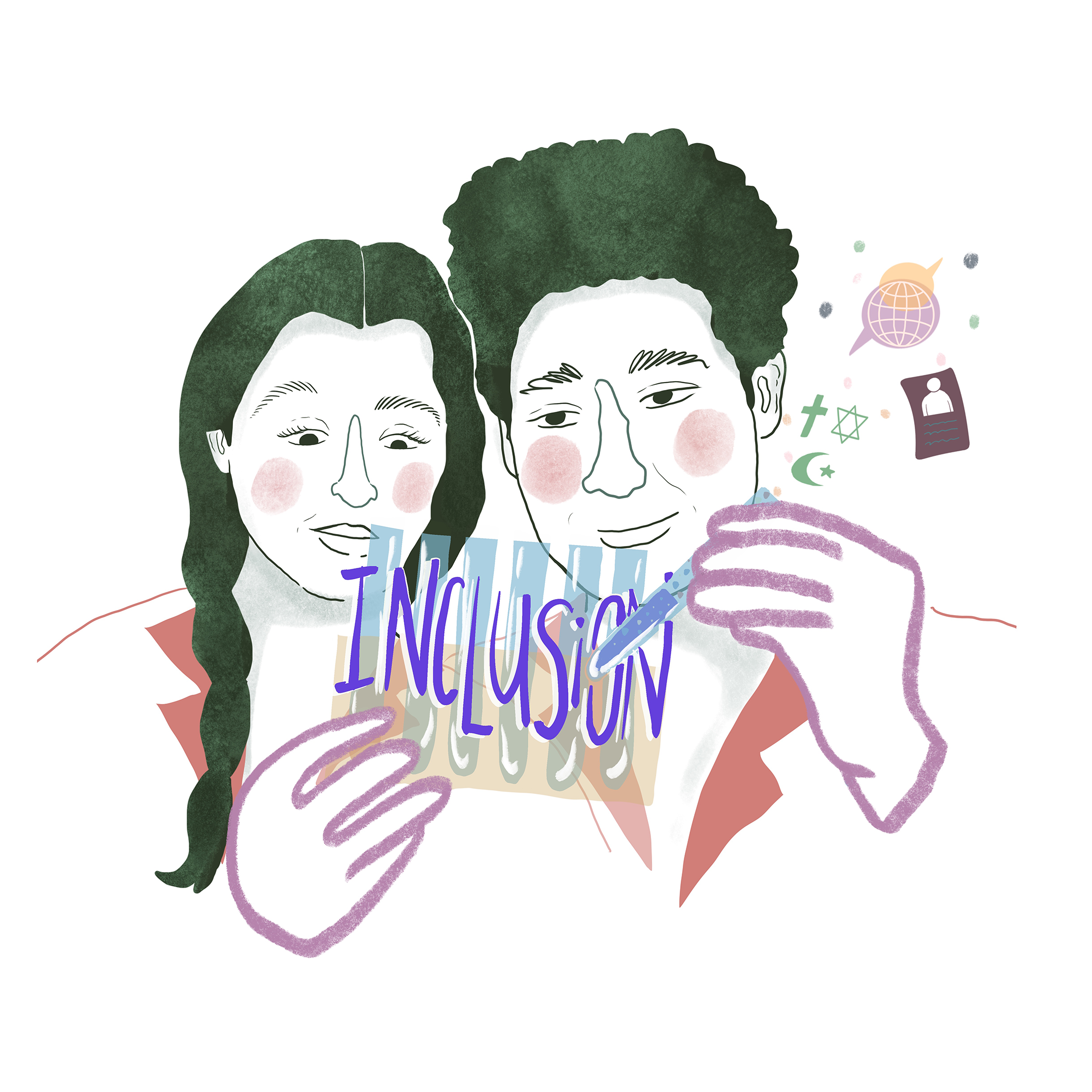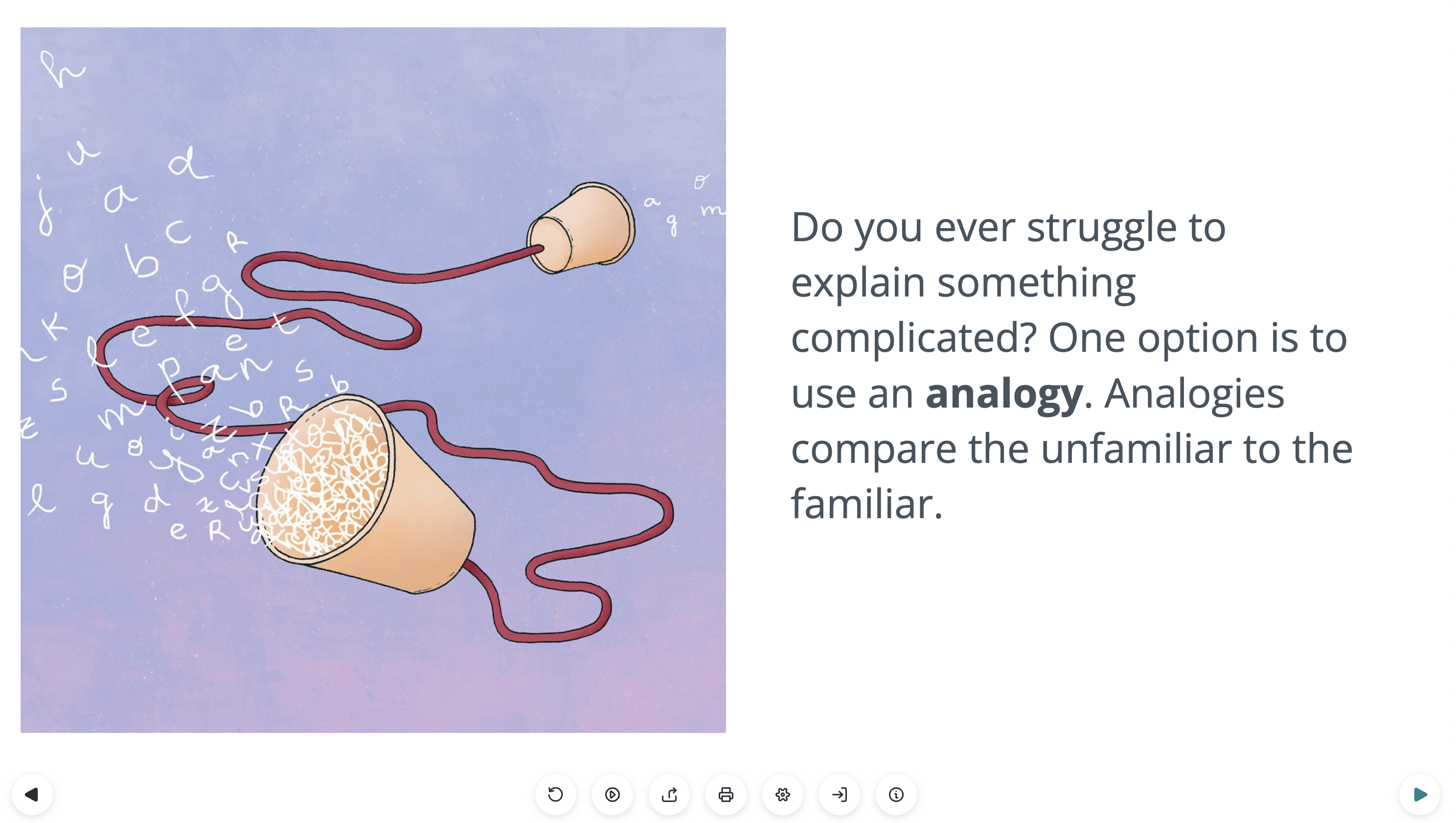To selfie or not to selfie? That is the question. Muhammad Ittefaq, one of the authors of the study called “COVID-19 vaccine selfie: a modest endeavor to increase vaccine acceptance,” tells us a little bit more about his recent research and its implications for communication about vaccines and science communication in general. The study was recently published in Psychology & Health.

A woman with a protective face mask takes a selfie in the doctor’s office while getting a COVID-19 vaccine.
COVID-19 vaccine selfies posted on social media platforms can play an important role in fostering vaccine acceptance among the masses. Although social media platforms can fuel vaccine hesitancy through the spread of misinformation regarding the COVID-19 vaccine, the rollout of the vaccine saw a proliferation of vaccine selfies on social media. Various people in society participated ranging from celebrities, political leaders, religious leaders, health workers, and even laypeople. The posting of selfies created a bandwagon effect that has since motivated people to get vaccinated and share their selfies online.
According to the authors, they situate their argument on vaccine selfies being a vital tool to promote vaccine uptake based on the theory of normative conduct, which states that individuals are motivated by what most people do. Thus, people tend to follow the actions of those in the forefront through mimicking behavior. The commentary article further accentuated that the motivations behind sharing the vaccine selfies online have been propelled by several intentions: first, to let other people know that they are vaccinated; second, to invite their loved ones to have social gatherings again; third, to encourage those who skeptical to get vaccinated; last, to share their personal stories about experiencing the effects of COVID-19 vaccine.
The authors, who are from the University of Kansas, United States and Bremen University, Germany, note that there has been public debate about posting vaccine selfies because they may be misconstrued as vaccine shaming of those who have not been vaccinated. However, the authors contend that taking and sharing vaccine selfies is one of the most prolific ways to send a message that vaccines are safe and can be effective to help reduce the number of COVID-19 related infections.

The article offered recommendations on how to make vaccine selfies more effective in communicating the need to get vaccinated through the following:
- Individuals should show their faces, have natural facial expressions and be fully dressed.
- Take the selfie from an angle where faces are visible.
- Use clearly written captions and use hashtags.
- Identify the vaccine (Pfizer, Johnson & Johnson or Moderna).
The authors note that this research can be foundational for other researchers. Science and health communicators can encourage people to share their selfies online. Further, sharing positive experiences with the COVID-19 vaccine can trigger positive responses from social media users and allay fears or reduce misinformation that is being spread on social media about the vaccine. Using a combination of narrative and visual communication by sharing personal experiences or stories alongside vaccine selfies can be a great step to help people feel less hesitant about getting vaccinated.
Full access to the article can be found here.
Many thanks to Muhammad Ittefaq for providing much of the above content as a synopsis of his most recent research article.




